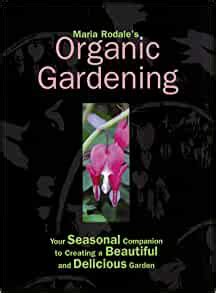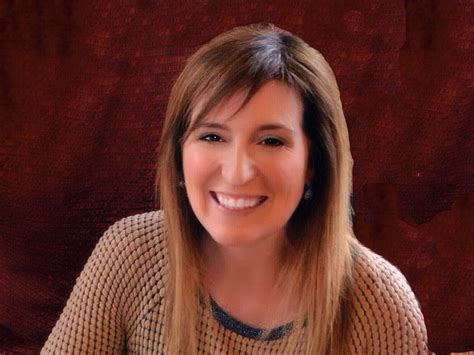A Quote by Howard Warren Buffett
There are more living organisms in a tablespoon of highly organic soil than there are people on the planet.
Related Quotes
Since chemical fertilizer burns out the soil organic matter, other farmers struggle with tilth, water retention, and basic soil nutrients. The soil gets harder and harder every year as the chemicals burn out the organic matter, which gives the soil its sponginess. One pound of organic matter holds four pounds of water. The best drought protection any farmer can acquire is more soil organic matter.
Four elements, Hydrogen, carbon, oxygen and nitrogen, also provide an example of the astonishing togetherness of our universe. They make up the "organic" molecules that constitute living organisms on a planet, and the nuclei of these same elements interact to generate the light of its star. Then the organisms on the planet come to depend wholly on that starlight, as they must if life is to persist. So it is that all life on the Earth runs on sunlight. [Referring to photosynthesis]
Yet soil is miraculous. It is where the dead are brought back to life. Here, in the thin earthy boundary between inanimate rock and the planet's green carpet, lifeless minerals are weathered from stones or decomposed from organic debris. Plants and microscopic animals eat these dead particles and recast them as living matter. In the soil, matter recrosses the boundary between living and dead; and, as we have seen, boundaries-edges-are where the most interesting and important events occur.
Even if you could use all the organic material that you have--the animal manures, the human waste, the plant residues--and get them back on the soil, you couldn't feed more than 4 billion people. In addition, if all agriculture were organic, you would have to increase cropland area dramatically, spreading out into marginal areas and cutting down millions of acres of forests.
Organic is something we can all partake of and benefit from. When we demand organic, we are demanding poison-free food. We are demanding clean air. We are demanding pure, fresh water. We are demanding soil that is free to do its job and seeds that are free of toxins. We are demanding that our children be protected from harm. We all need to bite the bullet and do what needs to be done—buy organic whenever we can, insist on organic, fight for organic and work to make it the norm. We must make organic the conventional choice and not the exception available only to the rich and educated.
It's as if the whole notion of growing soil is something only lunatics would think about. But why not grow soil? Does anything make more sense than growing soil? Isn't that more important than tractors, trucks, silos, barns, county fairs and country music? Of course it is. And yet to the lion's share of American farmers, the very notion of growing soil is just plain silly.
There's a lot of research that suggests that organic yields are close or superior to conventional yields depending on factors like climate. In a drought year an organic field of corn will yield more - considerably more - than a conventional field; organic fields hold moisture better so they don't need as much water. It simply isn't true that organic yields are lower than conventional yields.
We don't even know what species are out there, for the most part, particularly when you get down to the microbes and very small invertebrates. They make up the mass of the organisms around us, including the soil we depend on, the soil of cornfields as well as hardwood forests. We haven't taken ecology to the point where we can even make a crude prediction of what's going to happen when we've reduced the living world down to a certain level.
If in the human economy, a squash in the field is worth more than a bushel of soil, that does not mean that food is more valuable than soil; it means simply that we do not know how to value the soil. In its complexity and its potential longevity, the soil exceeds our comprehension; we do not know how to place a just market value on it, and we will never learn how. Its value is inestimable; we must value it, beyond whatever price we put on it, by respecting it.
There are millions and millions of species, including organisms most people have never heard of. There is so much that waits to be told. We don't know the functions of most of them, but they may be more vital for the planet's future sustainability than we can even dream. And we have to find out; we need to be doing this sort of study.
We are here because over billions of years, countless variables fell into place, any of which could have taken another path. We are essentially a beautiful fluke, as are the millions of other species with which we share this planet. Our cells are composed of atoms and dust particles from distant galaxies, and from the billions of living organisms that inhabited this planet before us.
Evolutionary biologists often appeal to parsimony when they seek to explain why organisms "match" with respect to a given trait. For example, why do almost all the organisms that are alive today on our planet use the same genetic code? If they share a common ancestor, the code could have evolved just once and then been inherited from the most recent common ancestor that present organisms share. On the other hand, if organisms in different species share no common ancestors, the code must have evolved repeatedly.
We cannot fathom the marvelous complexity of an organic being; but on the hypothesis here advanced this complexity is much increased. Each living creature must be looked at as a microcosm--a little universe, formed of a host of self-propagating organisms, inconceivably minute and as numerous as the stars in heaven.

































